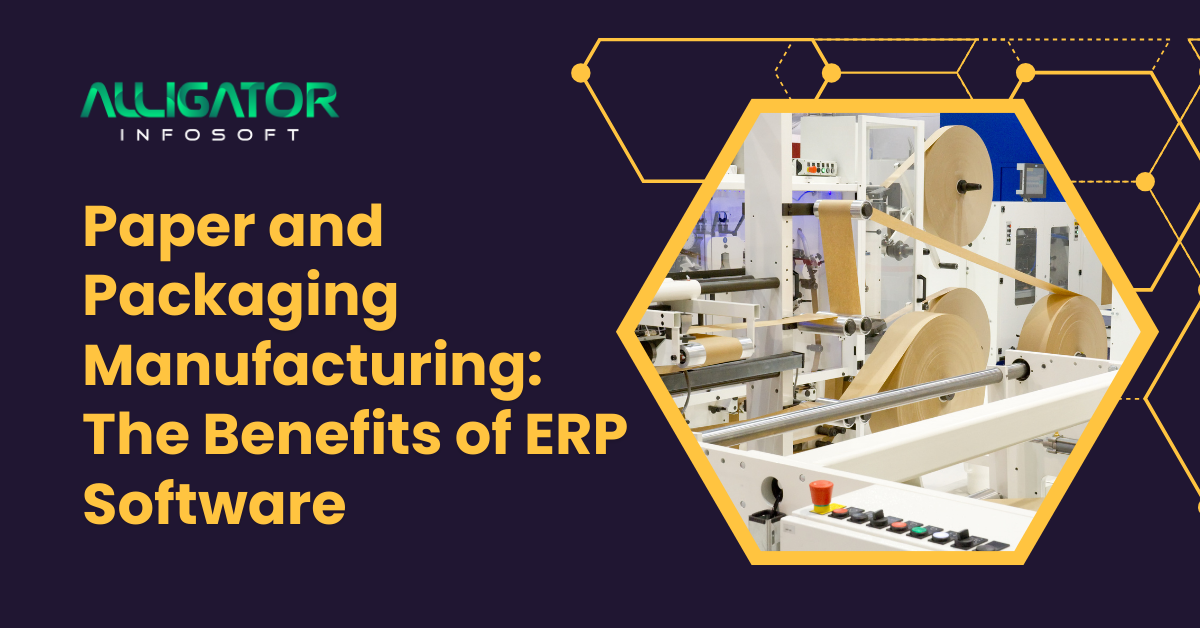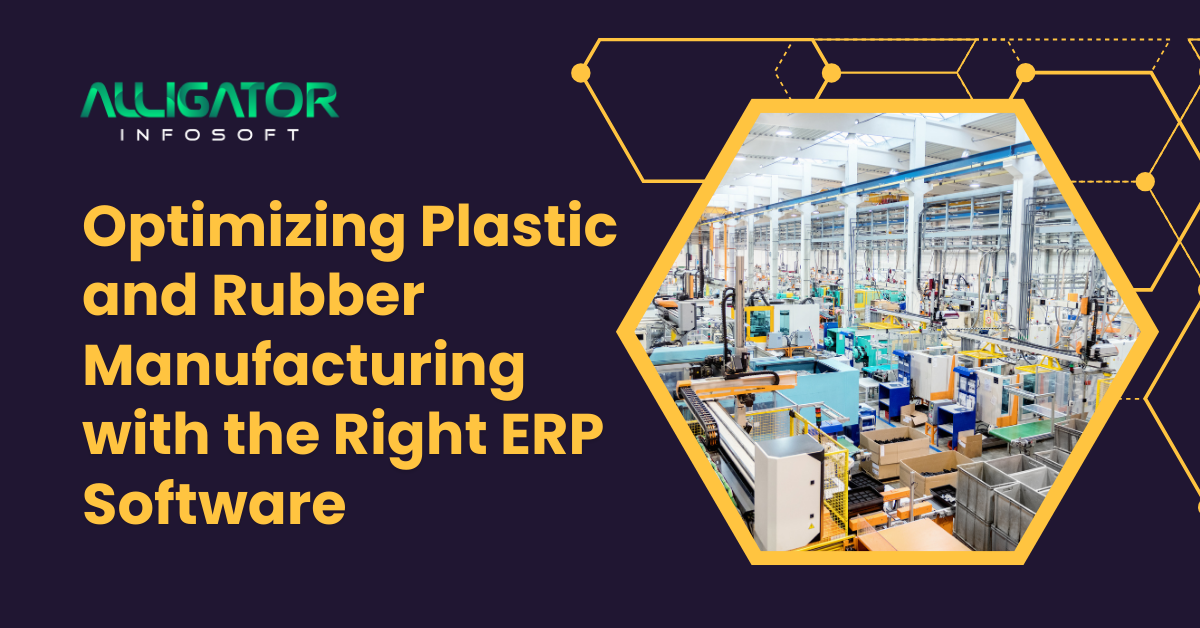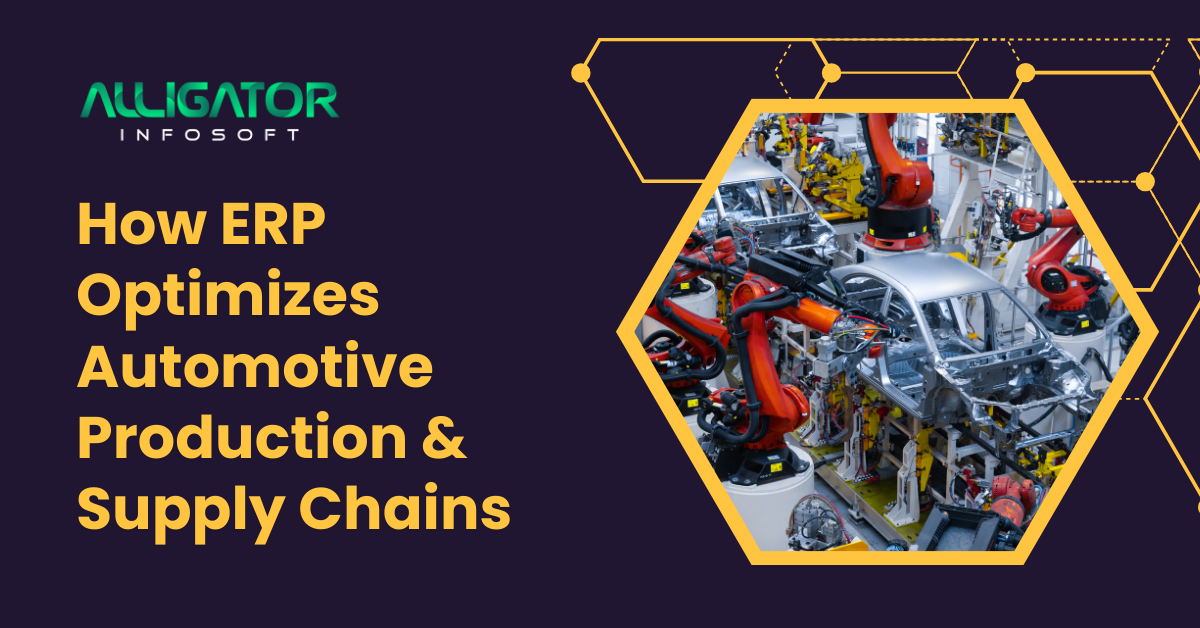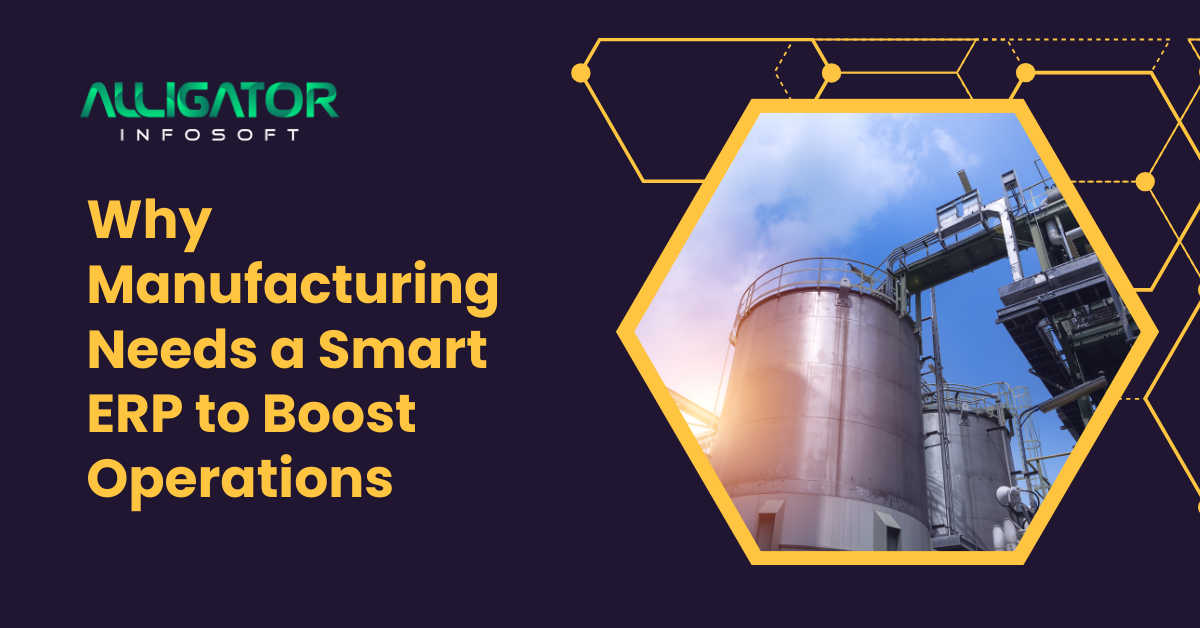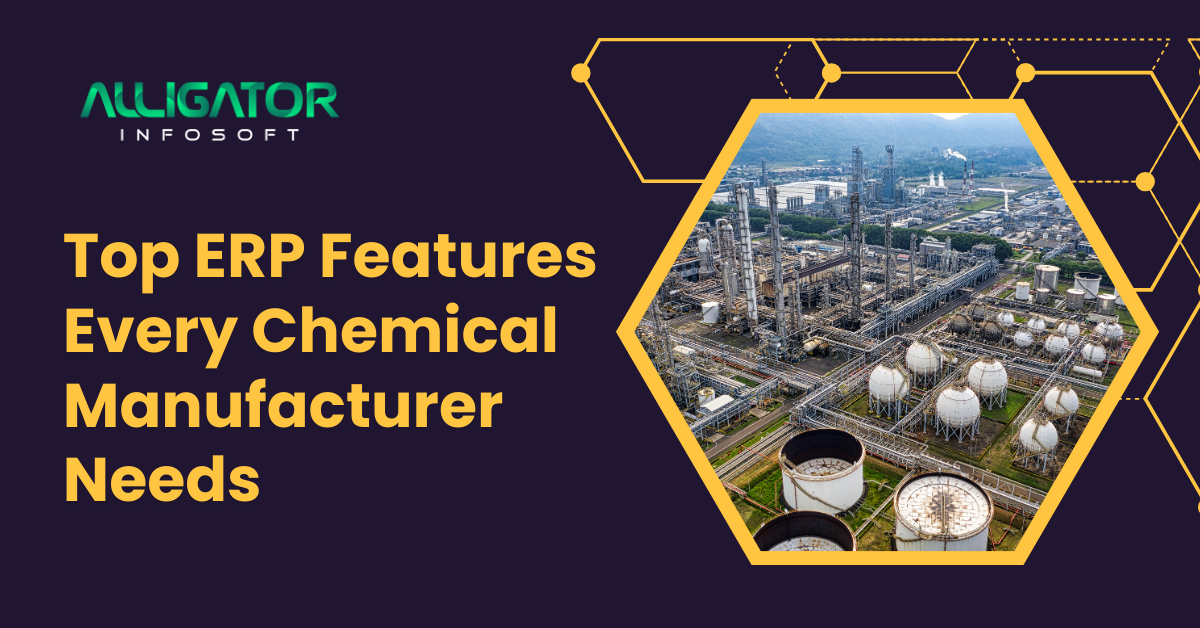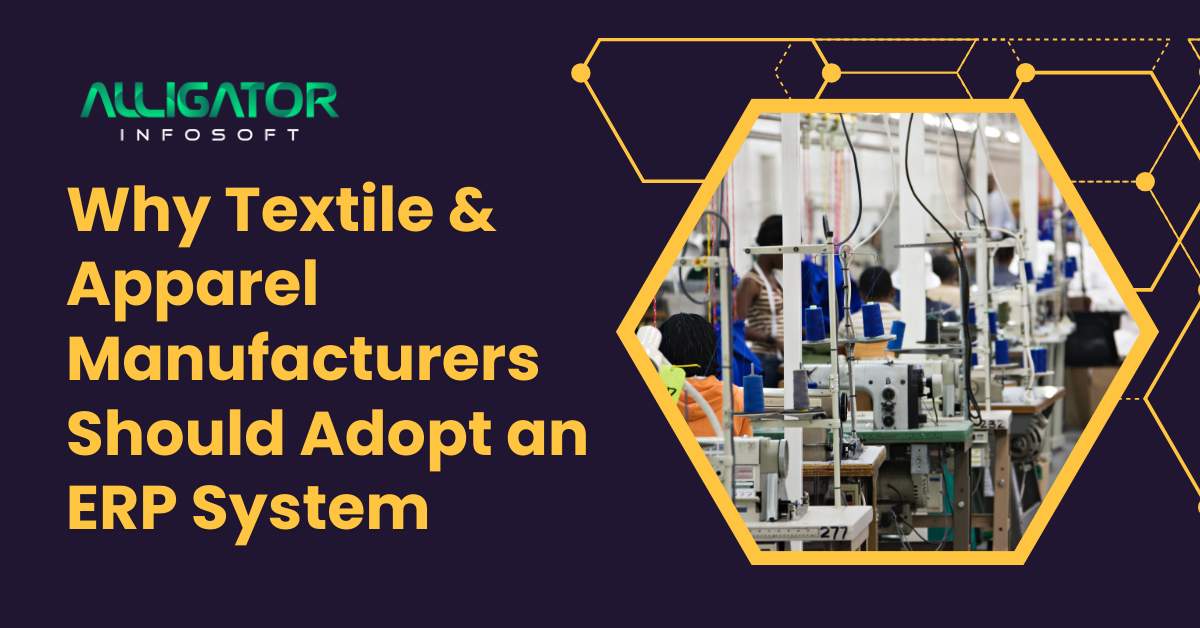Paper and Packaging Manufacturing: The Benefits of ERP Software
The paper and packaging industry operates in a highly dynamic environment where manufacturers must balance efficiency, sustainability, and customer demands. Managing raw materials, optimizing production lines, and ensuring regulatory compliance require a well-structured approach. Traditional methods often lead to inefficiencies, errors, and high operational costs. This is where ERP (Enterprise Resource Planning) software plays a key role. A well-integrated ERP solution streamlines operations, enhances decision-making, and ensures seamless business processes. From implementation to customization, the right ERP system transforms how paper and packaging manufacturers operate. Whether it’s improving supply chain efficiency, reducing material waste, or ensuring compliance with environmental regulations, ERP systems provide a holistic approach to business management. Understanding ERP Software in Paper and Packaging Industry What is ERP Software? ERP software is a centralized system that integrates all business functions—from production planning and inventory management to customer orders and financials. It helps manufacturers gain visibility into operations, reduce waste, and optimize efficiency. With ERP, businesses can automate repetitive tasks, minimize human errors, and improve overall coordination among departments. Industry-Specific ERP vs. Generic ERP Solutions Not all ERP systems cater to the unique needs of the paper and packaging industry. Industry-specific ERP solutions offer tailored functionalities such as material waste tracking, supply chain optimization, and compliance management. A specialized ERP can integrate with existing tools and machinery, allowing for smooth operation without major workflow disruptions. Unlike generic ERP solutions, industry-specific ones come with pre-configured modules that meet the exact requirements of packaging businesses, from carton manufacturing to paper mills. Key Benefits of ERP Software for Paper and Packaging Manufacturing 1. Efficient Production Planning & Scheduling With an ERP system, manufacturers can optimize machine utilization, reduce downtime, and align production schedules with customer demands. ERP software provides real-time data, ensuring better planning and execution. Implementation of automated scheduling tools prevents bottlenecks and improves overall productivity. By leveraging predictive analytics, businesses can anticipate production demands and ensure just-in-time (JIT) manufacturing to reduce excess stock and lower storage costs. 2. Real-Time Inventory Management Maintaining the right stock levels is critical in packaging manufacturing. ERP solutions offer real-time tracking of raw materials, semi-finished goods, and finished products. With advanced inventory control and integration with procurement systems, manufacturers can minimize overstocking or stockouts. Additionally, barcode and RFID scanning features in ERP solutions allow real-time visibility into inventory movements, reducing manual errors and improving warehouse efficiency. 3. Improved Supply Chain Efficiency From sourcing raw materials to delivering final products, an ERP system streamlines supply chain processes. With features like automated supplier management and logistics tracking, businesses can reduce costs, improve lead times, and enhance supplier relationships. ERP enables direct communication with suppliers, ensuring a steady inflow of materials without unnecessary delays. Predictive analysis also helps businesses foresee disruptions and take proactive measures to avoid operational hiccups. 4. Cost Reduction & Waste Minimization Paper and packaging manufacturers deal with high material costs. ERP software helps reduce waste by optimizing material usage and automating workflows. Customization options allow businesses to set specific parameters for sustainability, ensuring minimal waste and improved profitability. By analyzing production data, ERP systems can suggest optimal cutting patterns and material usage strategies, significantly reducing scrap and rework costs. 5. Regulatory Compliance & Quality Control The industry faces strict environmental and safety regulations. ERP systems include compliance tracking, documentation management, and quality control modules, ensuring adherence to industry standards. With automated audit trails, manufacturers can easily meet regulatory requirements. ERP solutions also provide traceability features, allowing businesses to track raw materials, monitor batch production, and ensure that every product meets the required specifications before shipping. 6. Streamlined Order Processing & Customer Management ERP software simplifies order tracking, automates billing, and ensures on-time deliveries. Customer relationship management (CRM) modules within ERP systems provide better insights into customer preferences, improving service and retention. Manufacturers can manage customer interactions, process orders quickly, and ensure accurate deliveries, leading to better client satisfaction and repeat business. 7. Data-Driven Decision Making With advanced analytics and reporting tools, businesses can make informed decisions. ERP solutions provide real-time dashboards, forecasting tools, and historical data analysis, empowering manufacturers to adapt to market changes quickly. Businesses can analyze trends, predict demand, and adjust production accordingly, ensuring efficiency and profitability. How ERP Improves Sustainability in Paper and Packaging Manufacturing Reducing Material Waste: Automated calculations help minimize cutting errors and optimize material usage. By using ERP-driven production planning, businesses can maximize every roll of paper or sheet of cardboard to reduce scrap. Energy Efficiency: ERP-integrated monitoring tools track energy consumption and suggest areas for improvement. Manufacturers can monitor machine performance, identify inefficiencies, and implement energy-saving measures to lower operational costs. Regulatory Compliance: Keeping track of environmental policies ensures manufacturers stay compliant with sustainability goals. By maintaining digital records of compliance, businesses can avoid penalties and ensure continuous adherence to industry regulations. Key Features to Look for in ERP Software for Paper & Packaging Customizable production workflow management for flexibility in operations. Integration with warehouse and logistics systems to improve material handling. Automated financial management for seamless budgeting and accounting. CRM and customer order tracking to enhance customer experience. Cloud-based accessibility for remote monitoring and control. Support for multi-location operations to manage production units across different regions. Case Studies: How ERP Transforms Paper & Packaging Companies Many leading paper and packaging companies have successfully implemented ERP solutions to streamline operations. Businesses report significant improvements in order fulfillment speed, inventory accuracy, and production efficiency after ERP adoption. For instance, a mid-sized packaging manufacturer saw a 30% reduction in material waste and 20% improvement in order processing speed within the first year of ERP implementation. Another company improved compliance tracking and reduced errors in regulatory documentation, avoiding costly penalties. Choosing the Right ERP Software for Paper & Packaging Manufacturing Finding the right ERP software can make a huge difference for paper and packaging manufacturers, as it streamlines processes, enhances efficiency, and ensures compliance with industry standards. There are numerous ERP solutions available, but not all are equipped to address the specific needs of the paper and packaging sector.


